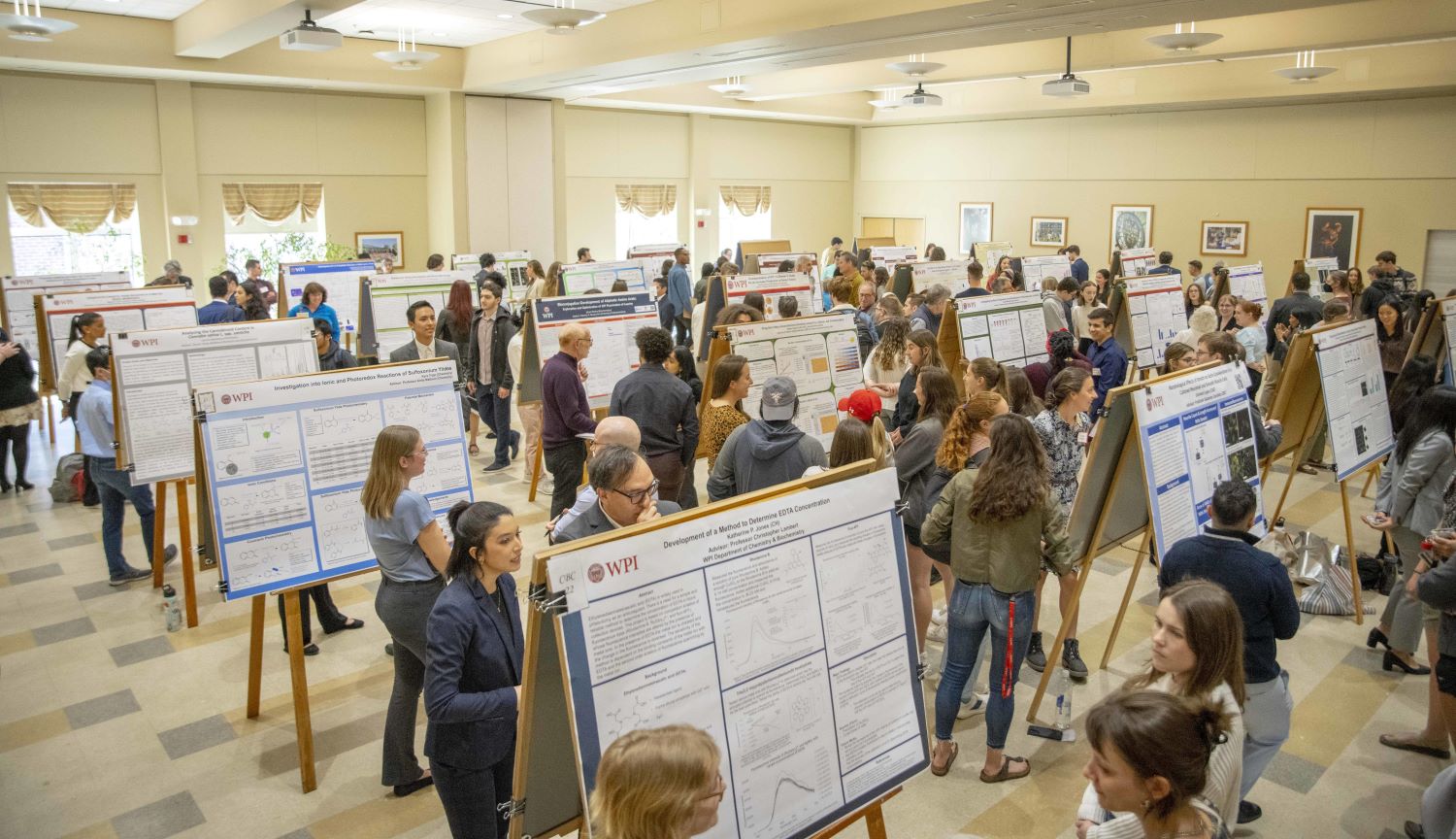
Academic and industry representatives from the fields of biomedical engineering (BME) and biomedicine will gather with students of BME and related studies at the Biomedical Engineering Society (BMES) Symposium, set for Tuesday, March 25, in the Rubin Campus Center Odeum from 12:30 to 4:45 pm.
Industry leaders such as Boston Scientific, Johnson & Johnson, and Boston Biomedical will be on hand to present their research. Also scheduled are question-and-answer sessions, career panels, and a networking session.
This is the first BMES symposium, says Kristin Sundberg ’14, president of the WPI chapter of BMES, which is hosting the event. She explains that the event aims to show the value of the biomedical engineer’s diverse skill set in evolving to fit the needs of patients and the changing job market.
“The symposium is designed to educate students on career opportunities in biomedicine for the next decade by having academic and industry professionals present their current research in the BME sub-fields of instrumentation, biomechanics, and biomaterial-tissue interactions,” she says.
A highlight of the symposium is a special opportunity for students to share their projects, research, and experience― in poster form―with participating industry representatives and each other, according to Tori Miller ’15, BMES alumni coordinator.
“This is a fantastic opportunity for attending students to share what they have achieved with the professionals in attendance, and to inspire other students as well,” she says. “Students from other schools and representatives from industry and academia will be able to view the posters and ask questions on their research.”
Miller describes the networking session as something of a “mixer” in which students and professionals can meet in a one-on-one or group setting. For students presenting posters, she adds, it will be an excellent way to discuss research with industry or academic representatives who might have explored similar topics.
“We hope that this event will encourage and inspire attending students to reach further into the field and their plans for their future as biomedical engineers.”
“Networking is an integral part of the engineering world; communication is what reaches out to those who might have the potential to dramatically impact the field. This session will create a relaxed atmosphere in which students will be able to chat with professionals and form mutually beneficial connections.” The networking session can potentially aid in future internships, volunteer positions, or possible mentoring from a current industry or academic representative, she adds.
The symposium is an important event for students, Miller believes, because it seeks to offer a valuable learning experience―in terms of both general research and in demonstrating what it’s like to work as a biomedical engineer. Many BME students have some idea of where they’d like to end up, she adds, but it can be difficult to fully appreciate the difference between undergraduate study and working as a BME professional.
To apply to present research, email tlmiller@wpi.edu<mailto:tlmiller@wpi.edu with an abstract paragraph of the research.
Headquartered in Landover, Md., the Biomedical Engineering Society was founded in 1968 to serve as the world’s leading society of professionals devoted to developing and using engineering and technology to advance human health and well-being.
According to its website, the mission of the 6,500-member society is to build and support the biomedical engineering community through activities designed to communicate new advances, discoveries, and inventions; to promote education and professional development; and to integrate the perspectives of the academic, medical, governmental, and business sectors.
BY MIKE D’ONOFRIO
Never miss a story in the Daily Herd again!
Subscribe to the Daily Herd to receive updates on new postings!


